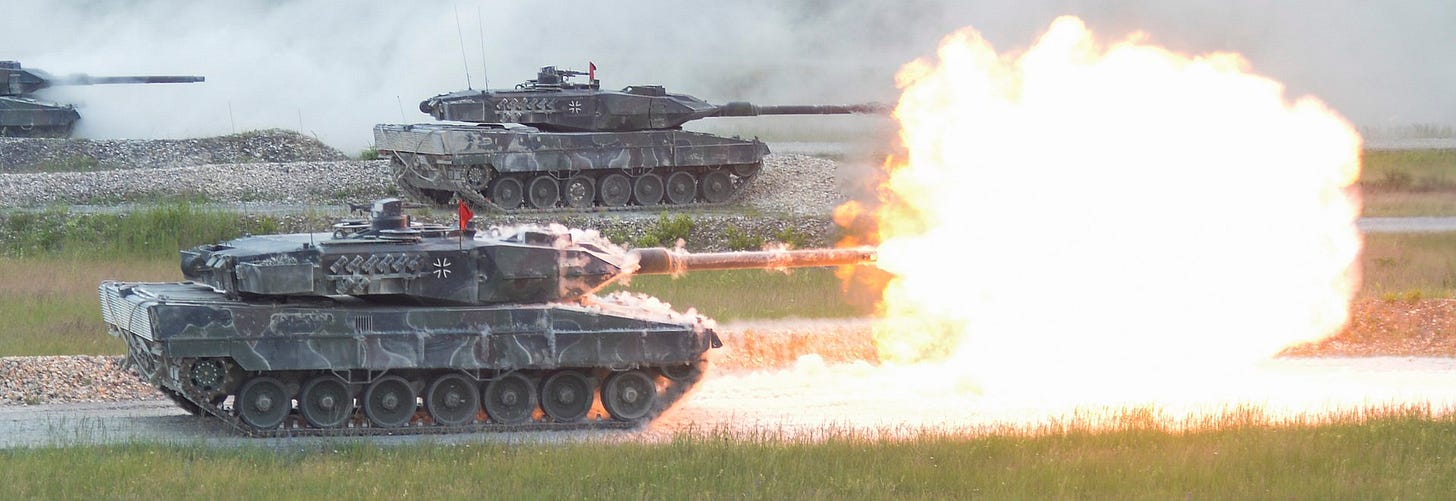Escalation in complex space
So for now, no Leopard 2 Tanks will be delivered to Ukraine. Chancellor Olaf Scholz is maneuvering in a multidimensional, complex space of possible escalations.
(Leopard 2A6: 7th Army Training Command from Grafenwoehr, Germany, CC BY 2.0, via Wikimedia Commons)
Adherents of the so called realist school of the scholarship of international relations, can pat themselves on the back. As Olaf Scholz just demonstrated, natural forms of national interests, dictated by geography and the requirements of national security, do indeed exist. Germany’s elites are as much in support of liberal democracy, including all the current year fad’s from multiculturalism to trans rights, to Ukraine then any of their counterparts in other western countries. But as it seems, the ideological makeup of a country and it’s elites can only change these natural interests to a limited extend. Only people without any personal responsibilities, members of parliament and journalists, have the luxury to indulge their transatlantic inclinations to their hearts content. The Federal Chancellor has to keep in mind, that there is still the Atlantic between Germany and the United States, but only the European Plains between Germany and Russia.
Concerning the support for Ukraine, western public debate has become clogged by an insufficiently complex imagination about escalation, revolving around the nuclear option. In it’s most sophisticated version, this theory of nuclear escalation has been put forward by John Mearsheimer:
TL;DR: For Russia, the war in Ukraine is existential. If the West equips Ukraine with enough weaponry to inflict a clear defeat on Russia, or if NATO even intervenes with it’s own troops, Russia will use a nuclear first strike, before letting itself be pushed out of the league of great powers. Since Russia itself would not survive a nuclear war, this theory supposes a suicidal irrationality on part of the Russian leadership. In contrast to most proponents of this nuclear theory of escalation, Mearsheimer openly admits this supposition. Great powers, he says, will tend to act irrationally, if they consider their status as a great power endangered. This theory which in the end results in the idea: “We have to let Putin win, otherwise the madman will blow up the globe!”, has been rightly ridiculed by supporters of further arms deliveries to Ukraine.
Of course, the same argument also exists the other way around: The real danger of nuclear escalation would be the result of the United States entering a war against Russia in Eastern Europe. Trusting in their capability as the “world’s only superpower” to beat the Russians on their front lawn, the panic after a conventional defeat would lead to the American leadership pressing that red button.
The reality is different. Since the first day, the Ukraine war happened in a multidimensional, complex space of possible escalations.
To prevent a likely misunderstanding: I do not simply claim, that the war in Ukraine is a multidimensional and complex process. This claim would be somewhat of a banality, since all political processes are in some way ore another “multidimensional” and “complex”. My claim is, that it’s escalatory logic is in a multidimensional, complex space. A subtle, yet important difference.



